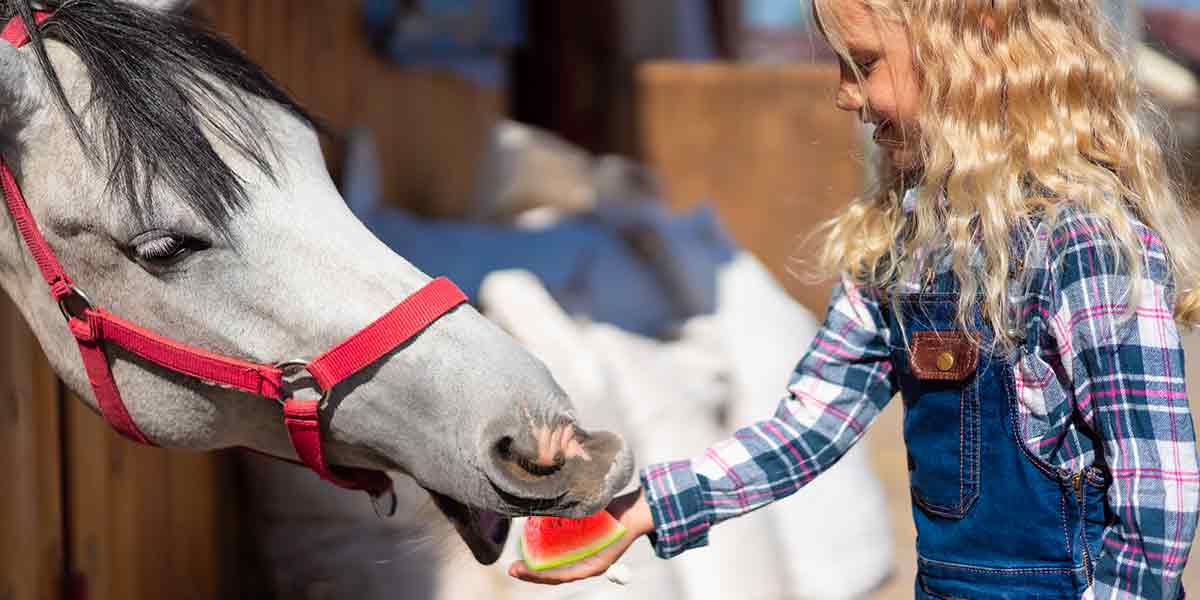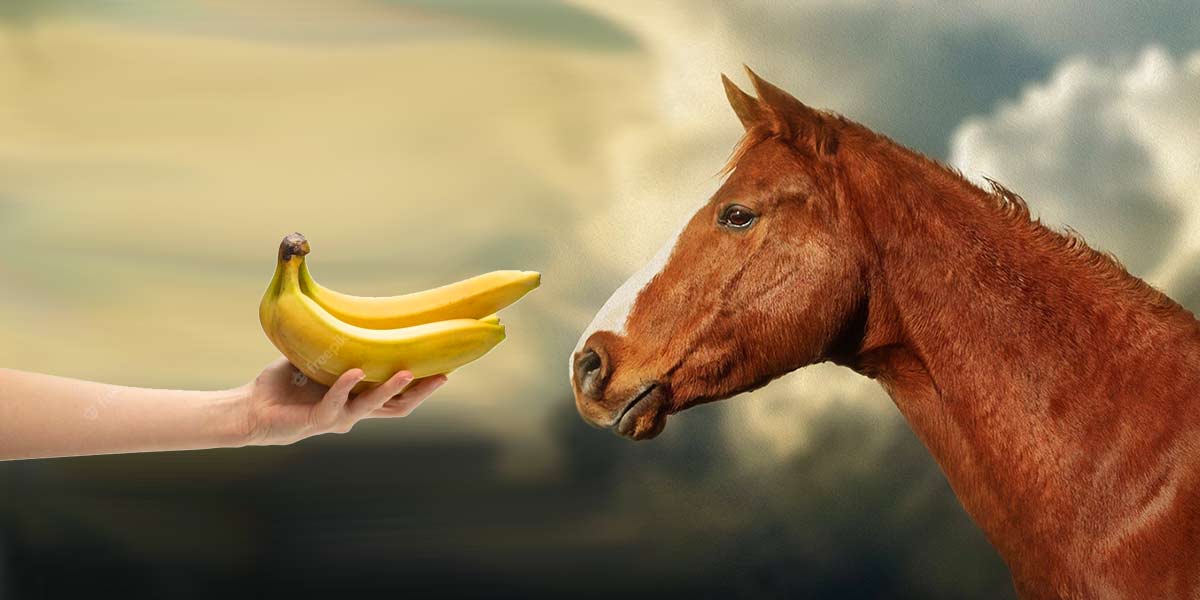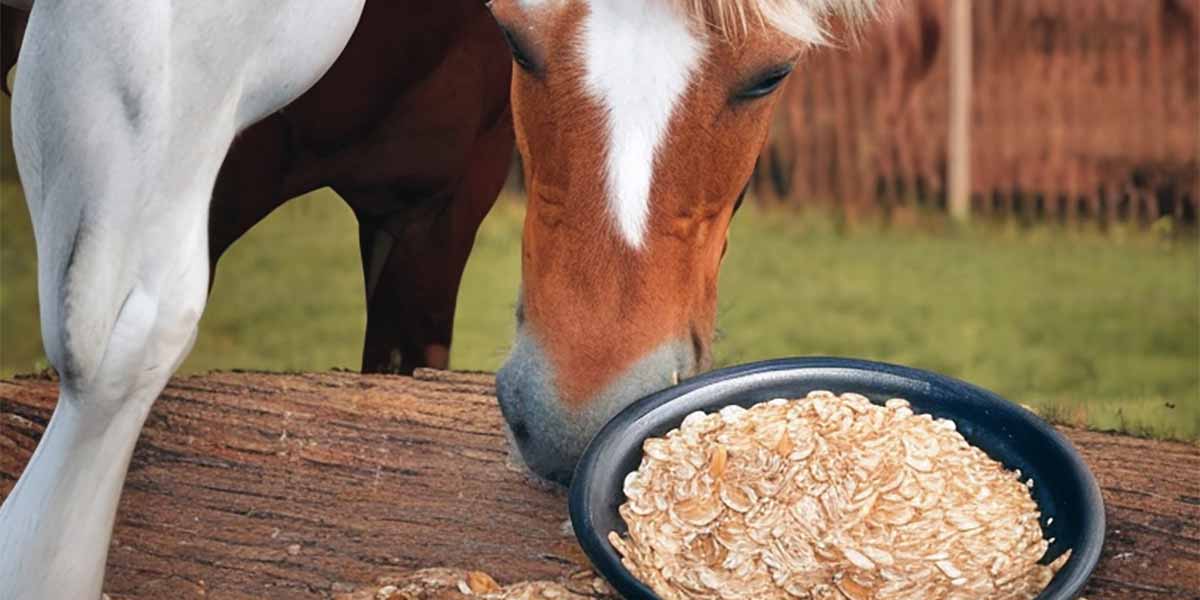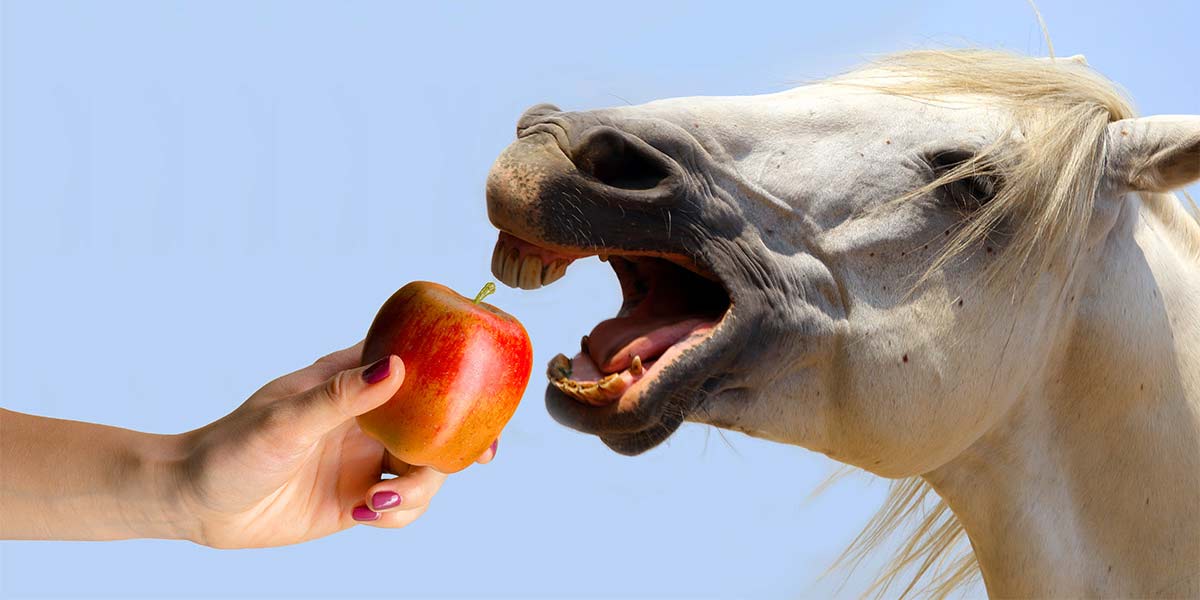Can I feed my horse watermelon? Hey there, horse lovers! Today, we will dive into a fascinating question that might have crossed your mind when sharing a summer snack with your equine companion.
As an affiliate, we earn from qualifying purchases. We get commissions for purchases made through links in this website’s posts from Amazon and other third parties.
Can I feed my horse watermelon?
Have you ever wondered, “Can I feed my horse watermelon?” Watermelons are such a refreshing and delicious treat, and it’s only natural to want to share this juicy delight with your four-legged friend.
But before you go ahead and slice up a watermelon for your horse, let’s explore whether it’s safe and healthy for them to enjoy this summertime favorite. So, saddle up and get ready to find out if watermelon belongs on your horse’s menu!
Ask the Vet – Safe fruits and vegetables for horses video:
Key takeaways
- Watermelon is safe for horses to eat in moderation, but it should not replace their regular diet of hay and feed.
- You should only offer small amounts of watermelon at a time, as too much can lead to digestive issues.
- Remove the rinds and seeds before giving watermelon to your horse, as they can cause choking or blockages.
- Always introduce new foods gradually and monitor your horse for any adverse reactions after feeding watermelon, like diarrhea or colic.
- If you are unsure if your horse can handle watermelon, ask your veterinarian for their advice.
Do horses like watermelon? Watch the video:
Introducing watermelon to your horse! Offer small portions to start
Feeding our equine friends can be an adventure! Watching their reactions as they enjoy different foods is truly heartwarming.
One fun and intriguing question that often comes up is, “Can I feed my horse watermelon?” The good news is, yes, you can! Watermelon can be a refreshing treat for our beloved horses. However, it’s important to introduce it gradually and offer small portions to start.
Horses have sensitive digestive systems, so it’s crucial to be careful with what we feed them. Introducing new foods gradually allows their bodies to adjust and prevents any possible digestive issues.
Start by offering just a small slice of watermelon to observe their reaction. If they seem to enjoy it without any signs of discomfort, you can gradually increase the portion size. Remember, moderation is key.
Watermelon is mostly water and contains essential vitamins and minerals that can benefit horses. With its sweet and juicy taste, it makes for a delightful occasional treat. However, it should never replace their regular diet.
Always ensure that your horse has access to fresh water and a balanced diet of hay, grains, and other appropriate horse feeds. So, next time you’re indulging in some watermelon on a hot summer day, go ahead and share a small piece with your horse. Their enjoyment and happiness will surely bring a smile to your face!
Cut watermelon into small pieces for easy consumption
Have you ever wondered if horses can have a taste of this delicious fruit too like us? The answer is yes! Feeding your horse watermelon can be a fun and healthy treat, as long as it is done in moderation.
When it comes to feeding watermelon to your equine friend, it’s important to take a few precautions. Firstly, always remember to remove the rind and seeds before serving. The rind and seeds can be difficult for horses to digest and might potentially cause gastrointestinal issues. By cutting the watermelon into small, bite-sized pieces, you’ll make it much easier for your horse to consume.
Benefits of feeding your horse watermelon
Aside from being a tasty treat, there are a few benefits to feeding your horse watermelon. Watermelon is an excellent source of antioxidants such as vitamins A and C, as well as potassium. Potassium electrolytes can help maintain your horse’s fluid balance.
All these nutrients can contribute to your horse’s overall well-being and support a healthy immune system and help fight off harmful free radicals. Plus, the 92% water content in watermelon can help keep your horse hydrated, especially during hot summer days.
Watermelon contains also antioxidants like lycopene, which may help protect your horse’s cells from damage.
Another beneficial aspect of watermelon is its low-calorie content. If your horse needs to watch its weight, offering watermelon as a treat can be a smart choice. However, remember to offer it in moderation to avoid excessive sugar intake. Too much sugar can upset your horse’s digestive system or contribute to weight gain.
Monitor digestion for possible risks
Before introducing any new food, it’s important to monitor digestion for possible risks. Keep an eye out for any signs of discomfort or indigestion, such as colic or loose stools. By being attentive to changes in your horse’s digestion, you can ensure their well-being and enjoy the fun of treating them with watermelon.

Risks feeding watermelon to your horse
Watermelon, with its high water content, can provide a delicious and hydrating snack during the warmer seasons. However, moderation is key. Just like with any treat, it’s essential to avoid overindulgence.
Watermelon can be a beneficial treat for your horse, but there are some dangers to be aware of. Consider the following points:
- Sugar content: Watermelon is relatively high in sugar, so it should be given in moderation to horses that are prone to metabolic issues like insulin resistance or laminitis.
- Choking hazard: Watermelon peel can be a choking hazard for horses, so it’s important to cut it into small pieces.
- Digestive upset: Feeding your horse too much watermelon can cause digestive upset like diarrhea or colic. Start with a small amount and monitor your horse’s reaction before giving more.
What happens if your horse eats too much watermelon?
Too much watermelon can lead to digestive upset like diarrhea or colic, so it’s recommended to introduce this fruit gradually into your horse’s diet. Start with a small amount and monitor your horse’s reaction before giving more.
Watermelon should be given in moderation to horses that are prone to metabolic issues like insulin resistance or laminitis.
Can horses eat watermelon seeds?
Yes, the small seeds in watermelon can’t be a choking hazard for horses, so there is no need to remove them before feeding your horse any watermelon.
Can horses eat the peels from watermelon?
Yes, watermelon rinds are edible for horses and contain healthy vitamins and amino acids. However, make sure to cut up the watermelon into small pieces, wash it to get rid of any pesticides or other impurities, and only feed your horse a small amount of it.
Start by presenting small pieces, then observe their reaction. If your horse shows no adverse effects and enjoys the treat, you can continue occasionally including watermelon in their diet.
Final Words
So, to answer your question “Can I feed my horse watermelon?”, the answer is: Yes, but cut it into small pieces and feed it in moderation. Avoid overfeeding it with watermelon, if your horse is prone to metabolic issues like insulin resistance or laminitis. Otherwise, watermelon is a delicious and also nutritious fruit for your horse!
By delving into the intriguing world of horse nutrition, we can not only provide our horses with a varied and balanced diet, but also foster a deeper connection based on trust, care, and understanding.
Remember: Always consult your veterinarian that knows the medical history of your horse






